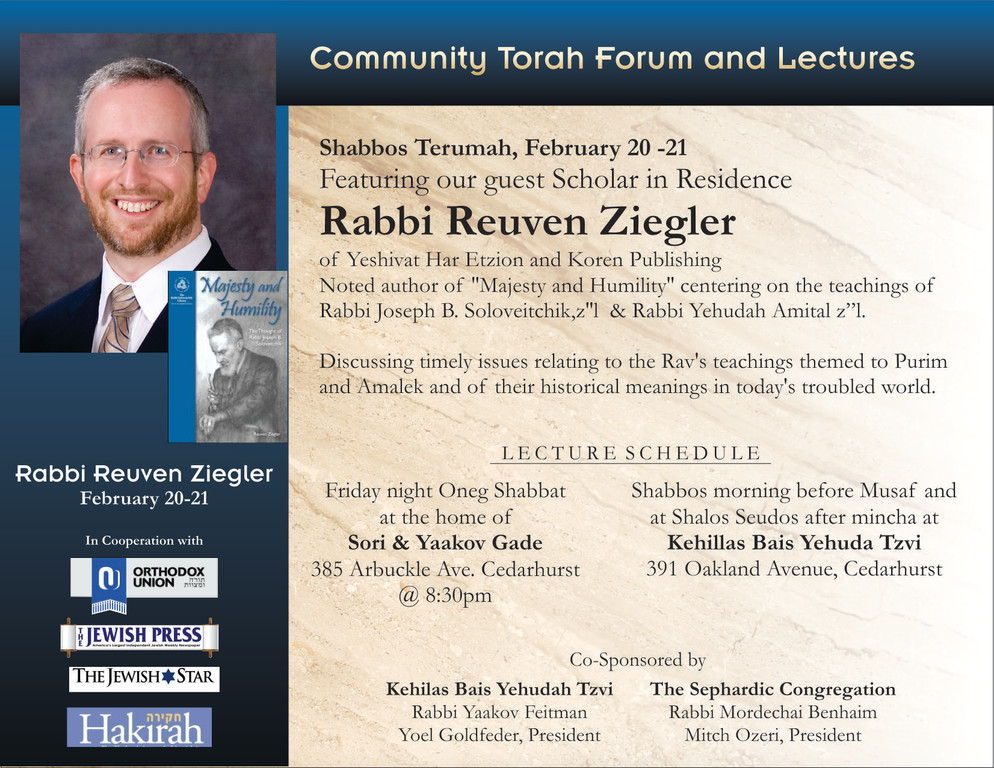Kol Dodi Dofek: Confronting today’s reality
Part Two (Click here for part one which ran last week.)
As noted previously, we live in dangerous times and, truth be told, we have always lived in dangerous times.
This week, I shall focus on the legacy of a speech by the Rav, Rabbi Joseph B. Soloveitchik originally delivered in Yiddish before a gathering of the Religious Zionists of American in May 1956 on the occasion of the eighth anniversary of the founding of the State of Israel. It was subsequently expanded upon, translated into Hebrew, and ultimately into English where it gained traction among many elements within the intellectual community of American Jewry.
The emotional heft inherent in its teachings, especially in the Rav’s perspective of the horrors of the Holocaust and the historic legacy of Jew hatred through the ages, has given this address (published as a book, “Kol Dodi Dofek: Listen, My Beloved Knocks,” KTAV Publishing House 2006) the richly deserved status of a Jewish theological class. This theological spin of the Rav’s work on this delicate subject was viewed by many serious scholars as a pivotal moment in the reality that Jews have come to face concerning the hostile world around them.
In his classic work, “Majesty and Humility” (Urim/OU Press, 2012), detailing the thoughts of the Rav, Rabbi Reuven Ziegler goes into great detail concerning the deeper meanings of “Kol Dodi Dofek.” In his review of this work by Rabbi Ziegler, the late Prof. Charles M. Raffel of Stern College wrote the following concerning Rabbi Ziegler’s treatment of the Rav’s teachings on this subject:
“Kol Dodi Dofek receives a direct treatment, culminating in a chapter titled quite simply, ‘The Significance of the State of Israel,’ which transcends the text of the essay itself to examine and question the core values and nuances of the Rav’s position on the ‘instrumental’ value of the state. Here, Rabbi Ziegler seems intent on not only explaining the Rav’s position on religion and state, but in pushing and probing it in light of contemporary issues and problems. The treatment is very brief, but suggestive nonetheless.” (The Torah u-Maddah Journal, 16/2012-13)

 80.0°,
Partly Cloudy
80.0°,
Partly Cloudy 




